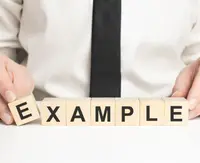
Why Are You Tested for Completing Statements?
The following are the reasons why the completing statements topic is included in verbal ability section:
1. Grammar and Vocabulary
Preparing for this topic helps students improve their understanding of sentence structure, verb forms, tenses, and other grammatical concepts and syntax. Completing statements topic also helps expand vocabulary and become familiar with different word usage and context.
2. Critical thinking and logical reasoning
Sentence completion exercises enhance critical thinking skills and the ability to make reasoned judgments. Completing statements requires one to analyze the context, draw inferences, and make logical connections with the help of the given information to choose the option that best fits the context.
3. Reading comprehension and contextual understanding
Completing statements requires comprehending written information effectively. It develops the ability to understand and interpret the meaning of a passage or sentence and fill the blank with appropriate words or phrases as per the context.
Completing Statements Resources
The resources mentioned below can help you with your completing statements preparation.

1. Examples
Examples are important in understanding the completing statements. By using real-world scenarios and applying the rules and principles related to completing statements, you can simplify and improve your comprehension of this topic.
View More
2. Practice Questions
Practice sample questions related to the completing statements topic. A candidate is more likely to comprehend the concept and improve their speed and precision the more questions they practice.
View MoreFAQsFAQs
What is completing statements in verbal ability?
Completing statements in verbal ability involves choosing the most appropriate or logical option to complete a sentence with a missing word, phrase, or concept. The student must select an option that best fits the context and meaning of the statement, making it grammatically correct and coherent.
Completing statements questions assess your ability to comprehend written information, analyze the context, and draw conclusions based on the given information. They also test your knowledge of grammar, vocabulary, and the ability to make logical connections.
How important is the completing statements topic in placement examinations?
The completing statements topic in placement examinations carries low weightage in the verbal ability section of these examinations. Depending upon the exam and question paper patterns, completing statements questions can comprise 10% to 20% of the questions. Although it's highly variable with the pattern of particular exams and the type of questions they decide to present.
Is completing statements difficult to learn?
No, not at all. Learning the completing statements topic is pretty easy, but it requires consistency and practice. Better language proficiency, grammatical, vocabulary and comprehension skills are crucial to achieving better performance in the completing statements topic.
You can hone your skills with profound reading habits and better writing practice to get the hang of completing the thought based on the context. You can also practice completing statements through quizzes, exercises, and other online resources to make learning the topic easier.
What is the fastest and most effective way to learn the completing statements topic?
The following are the fastest and most effective way to learn the completing statements topic:
- Understand the context thoroughly.
- Focus on key information.
- Improve vocabulary range and usage.
- Practice analyzing sentence structure.
- Develop critical thinking skills.
- Familiarize yourself with common grammar rules.
- Practice eliminating irrelevant options.
- Read extensively to enhance comprehension.
- Solve timed practice exercises.
- Seek guidance from experienced tutors or resources.



